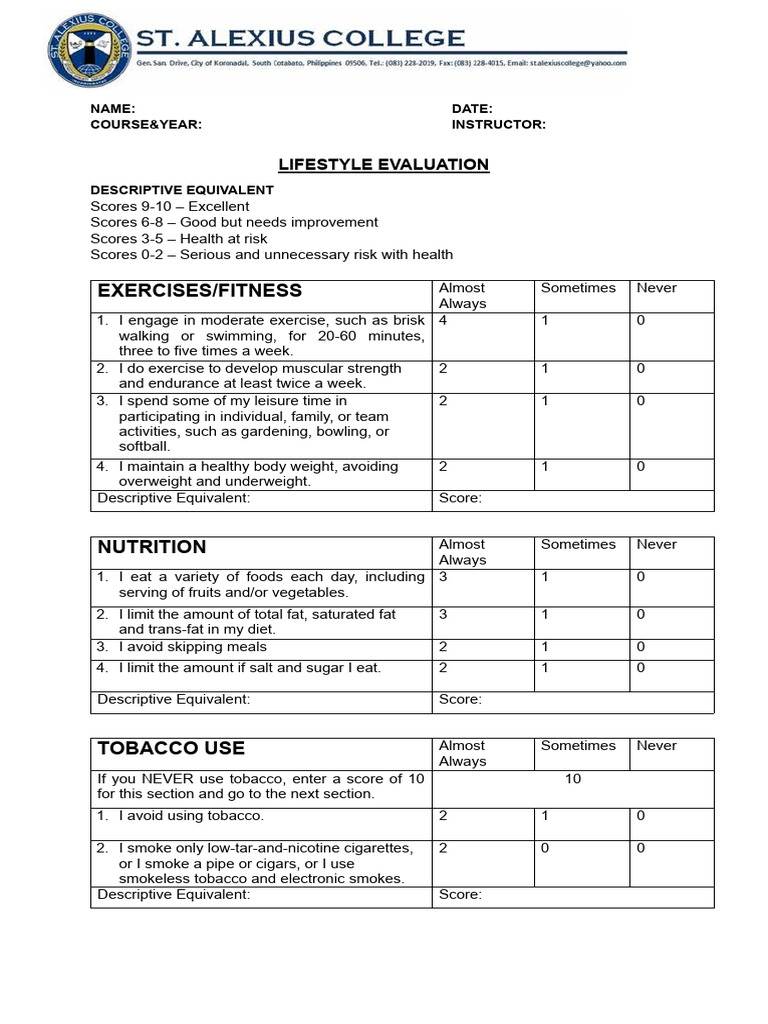A lifestyle audit isn’t about judgment or guilt. It’s about awareness. When you take the time to examine how you spend your time, money, energy, and attention, you begin to understand what fuels your growth and what holds you back. Just as businesses conduct audits to improve efficiency and profits, individuals can do the same to improve their personal fulfillment and life satisfaction.
In a world where everything moves at lightning speed, it’s easy to fall into routines that no longer serve us. From the way we manage our time to how we spend our money, much of our daily living becomes automatic. But just like companies conduct regular audits to assess performance and identify inefficiencies, individuals too must pause periodically to reflect on their lives. This is where a lifestyle audit comes in—an intentional evaluation of the choices, habits, and environments shaping our well-being.
Many people chase productivity or success without realizing that their current lifestyle may be holding them back. Unhealthy eating, toxic relationships, emotional burnout, poor spending habits, or digital overload—these issues often creep in subtly, becoming normalized until they begin to cause distress. When ignored, they can erode our health, peace of mind, and sense of purpose. Conducting a lifestyle audit is not about perfection or self-criticism but about honest reflection and course correction.
One of the main benefits of a lifestyle audit is clarity. It helps you see what’s working, what’s not, and where you’re simply drifting. It allows you to measure the gap between your current habits and the life you actually want to live. Are your actions aligned with your goals? Are your environments supporting or sabotaging your efforts? These are the kinds of questions a lifestyle audit helps you answer.
More importantly, auditing your lifestyle gives you back your agency. Rather than feeling like life is something happening to you, you begin to take ownership of your choices. You become more intentional, more grounded, and better equipped to make decisions that improve your overall quality of life. It’s a powerful form of self-respect, choosing to live consciously rather than by default.
Here are ten key areas to examine as you audit your lifestyle:
Assess Your Daily Routine
The first step in a lifestyle audit is to take a magnifying glass to your daily routine. From the moment you wake up to when you fall asleep, what exactly are you doing? Keep a time log for a full week; note what time you wake up, how long it takes you to get ready, and how much time you spend commuting, working, relaxing, and sleeping. You’ll likely uncover pockets of time spent unproductively, such as hours lost to aimless scrolling, gossip, or procrastination. Once you clearly see how you spend your time, you can begin to ask yourself if this routine is helping you grow or keeping you stagnant. Small tweaks, like waking up earlier, limiting screen time, or planning your day ahead, can have a transformative ripple effect across your life.
Review Your Financial Habits
Financial stress is one of the leading causes of anxiety and burnout. Start your audit by examining your income versus your expenses. Look at your bank statements, transaction history, and monthly bills. Are you budgeting consciously, or just surviving from paycheck to paycheck? How much are you saving, and what percentage goes toward debt or non-essential purchases? Do your spending patterns reflect your values and long-term goals? A lifestyle that includes unchecked spending, hidden debt, or poor savings habits may feel comfortable now, but it’s financially fragile. Reworking your budget, cancelling unused subscriptions, building an emergency fund, or seeking financial literacy resources can help you take back control.
Evaluate Your Physical Health
Your body is your foundation; everything else rests on it. Yet, it’s easy to ignore the small habits that erode physical health over time. Take a hard look at your lifestyle: Are you getting 7–8 hours of sleep each night? Are you physically active throughout the week? Do your meals nourish you, or are they mostly fast food and sugary snacks? Are you drinking enough water? Health doesn’t require perfection, but it does demand consistency. Even low-effort changes, like walking for 30 minutes a day or meal-prepping instead of ordering out, can radically improve your energy, focus, and overall well-being. You can’t thrive if your health is running on empty.
Audit Your Mental and Emotional Health
Mental health is just as important as physical health, yet often neglected until a breakdown occurs. Are you frequently overwhelmed, irritable, or emotionally exhausted? Do you experience chronic stress or negative self-talk? Are you emotionally available for others and yourself? Mental and emotional audits involve checking how you manage stress, how often you rest, and whether you’re engaging in activities that bring joy and calm. It might mean reducing your workload, practicing mindfulness, seeking therapy, or simply taking weekends off social media. Emotional regulation, boundaries, and rest are not signs of weakness; they are pillars of strength and emotional sustainability.
Examine Your Relationships
Your relationships can either nourish or deplete you. Begin this audit by listing the people you interact with most frequently. Do these relationships bring positivity, support, and growth? Or are they filled with toxicity, obligation, or manipulation? Evaluate both personal and professional relationships. Sometimes we hold on to connections out of habit, fear, or guilt. However, part of growing is learning when to let go, when to set firmer boundaries, and when to invest deeper. Strong relationships are reciprocal; they offer encouragement, accountability, and joy. Don’t be afraid to prune what no longer serves you; your peace and mental health are worth it.
Check Your Digital Consumption
Our screens have become silent thieves of time and attention. Track how many hours a day you spend on social media, streaming platforms, YouTube, or endless news feeds. What kind of content are you consuming, and how does it make you feel afterwards? Are you informed and inspired, or anxious and distracted? Your digital diet affects your mental state just like food affects your body. Set screen-time limits, unfollow accounts that don’t serve you, or take regular digital sabbaticals. Replacing screen time with reading, exercising, journaling, or connecting with real people can help you live more intentionally and reclaim hours lost to mindless scrolling.
Evaluate Your Work-Life Balance
Work can be fulfilling, but only when it’s balanced. Are you constantly working late, checking emails after hours, or feeling like you’re “on” 24/7? Or do you feel stuck, uninspired, and directionless in your current role? Neither extreme is healthy. True work-life balance means having enough time and energy for your job, personal growth, relationships, and rest. It also means setting boundaries with employers, clients, and even yourself. Use this audit to identify whether you’re working efficiently or just constantly busy. If your work is affecting your health, family, or identity, it’s time to reset your priorities or consider a change.
Revisit Your Goals and Purpose
Living without purpose feels like drifting. What goals are you pursuing right now? Do they still matter to you? Are they realistic, motivating, and measurable? Sometimes, we chase outdated goals out of habit or social pressure. A lifestyle audit helps you realign your everyday actions with your deeper aspirations. Maybe your goal is financial freedom, spiritual growth, starting a business, or healing from burnout. Whatever it is, your habits and choices should point in that direction. Break large goals into smaller milestones, track your progress, and celebrate wins along the way. Purpose gives direction, and direction gives life depth.
Evaluate Environmental Influences
Your environment plays a huge role in shaping your habits and emotional health. Is your home or workspace chaotic or calming? Are you surrounded by clutter or simplicity? Noise or tranquillity? Take inventory of your surroundings, the physical space, the energy, and even the people who regularly occupy it. A clean, organized, and visually pleasing environment promotes peace and productivity. Sometimes, a lifestyle change can be as simple as redesigning a room, adding plants, or creating a quiet corner for reading or prayer. You don’t have to renovate, just make your space support who you’re becoming.
Reflect on Your Spiritual and Ethical Alignment
Lastly, ask yourself: are you living in line with your spiritual or ethical beliefs? This isn’t about religion alone; it’s about values. Do you believe in honesty, kindness, fairness, service, or compassion? Are your actions and choices reflecting those beliefs? Misalignment in this area often leads to internal conflict, guilt, or confusion. Realigning your lifestyle with your core values restores peace, clarity, and authenticity. Whether it means volunteering, praying more, practicing integrity in your work, or being more present with your family, living from your center builds a life that feels meaningful, regardless of external success.
In essence, auditing your lifestyle is not a one-time activity; it’s an ongoing process of self-awareness and realignment. As seasons change and responsibilities evolve, so do your needs, values, and goals. By regularly pausing to reflect on how you’re living, you create space to recognize what’s draining you and what’s driving you. It’s not about striving for perfection but about making conscious decisions that support the life you truly want to live physically, emotionally, financially, and spiritually.
Many people go through life on autopilot, reacting to pressures and patterns without ever questioning their roots. But through an honest audit of your routines, relationships, health, and environment, you begin to reclaim your power. You learn to say “no” to what no longer serves you and “yes” to what brings meaning and momentum. This self-inventory is an act of courage, choosing intentional living over passive existence.
Ultimately, the goal of a lifestyle audit is not to overhaul everything overnight but to take small, consistent steps toward a more balanced, purposeful life. When your daily choices are aligned with your values, you experience less internal conflict and greater peace. You live more fully, love more deeply, and lead a life that reflects who you are and what you stand for. And that, in itself, is a form of personal freedom.







